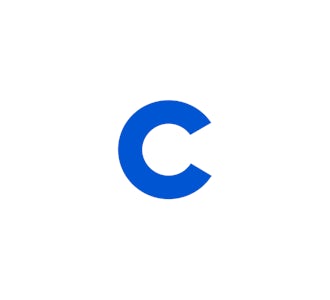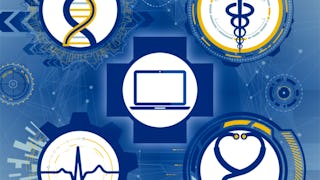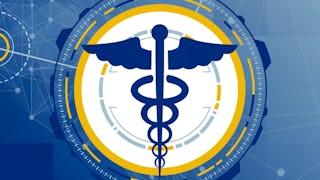![[Featured image] A health care business intelligence analyst works on her laptop from home, analyzing data for actionable insights.](https://images.ctfassets.net/wp1lcwdav1p1/2tITVKJ7Lc43MYFhJyx5rJ/7923dfeed604f223ee9ff9122e233de2/GettyImages-1488627382.jpg?w=330&h=216&q=60&fit=fill&f=faces&fm=jpg&fl=progressive)
What Is Health Care Business Intelligence?
Learn how health care business intelligence can help your hospital or health care organization run more efficiently and provide better quality patient care, as well as options for a career in this field.
April 10, 2024
Article

![[Featured image] A group of medical professionals interviews a candidate for a healthcare cybersecurity role opening.](https://images.ctfassets.net/wp1lcwdav1p1/530QehldDxxOcEStkabEsu/a0874d7c26a01ad9704ce0060c2efe51/GettyImages-174986977.jpg?w=330&h=216&q=60&fit=fill&f=faces&fm=jpg&fl=progressive)
![[Featured Image] A bioinformatics scientist works in a lab.](https://images.ctfassets.net/wp1lcwdav1p1/7gkmPudDGJbeledmZD7nKu/90c75c6aefb5465b06f578ec7c2c9eda/GettyImages-1422441637.jpg?w=330&h=216&q=60&fit=fill&f=faces&fm=jpg&fl=progressive)
![[Featured Image] A woman holding coffee and monitoring cybersecurity in health care environment.](https://images.ctfassets.net/wp1lcwdav1p1/5rS9IFNBwX7yP7GwUCcjHJ/a6bdc3613d9f5792c5aab4c4928907e0/GettyImages-1435062053.jpg?w=330&h=216&q=60&fit=fill&f=faces&fm=jpg&fl=progressive)
![[Featured image] An IT support specialist in a health care facility works on connecting a tablet with a computer system.](https://images.ctfassets.net/wp1lcwdav1p1/7webZperCypnxa18coQaO7/1948ecb0ef694fd1ea77499e8d1fc150/GettyImages-1440512414.jpg?w=330&h=216&q=60&fit=fill&f=faces&fm=jpg&fl=progressive)
![[Fetured imge] Two health information managers stand in a white room, looking at patient data on a laptop computer while standing in front of two desktop computers](https://images.ctfassets.net/wp1lcwdav1p1/1RrbflGLI49vB1LjuXux6f/d769161926d789ac43da94c908447d3c/GettyImages-1267151244__1_.jpg?w=330&h=216&q=60&fit=fill&f=faces&fm=jpg&fl=progressive)



![[Featured Image] A health informatics worker in a lab coat analyzes a chart with data.](https://images.ctfassets.net/wp1lcwdav1p1/1IYLYHwjEhE3myHXNGpHpl/89b35dba1d41a45b89cb6589d8eff983/GettyImages-1351962997.jpg?w=330&h=216&q=60&fit=fill&f=faces&fm=jpg&fl=progressive)
![[Featured Image]: Advance Practice Registered Nurse, consulting with a patient.](https://images.ctfassets.net/wp1lcwdav1p1/3rGeQx4O9dR2mWvGqJhykC/f2d5478b98cb7b83312cf014b66b855e/GettyImages-1173646995__3_.jpg?w=330&h=216&q=60&fit=fill&f=faces&fm=jpg&fl=progressive)
![[Featured Image]: Health Informatics specialist analyzing patients' data.](https://images.ctfassets.net/wp1lcwdav1p1/w7zkEr8qndyQMSRUKActY/6e3a955a6d1a4ccb5671061aa88da4fa/GettyImages-108436364__6_.jpg?w=330&h=216&q=60&fit=fill&f=faces&fm=jpg&fl=progressive)
![[Featured Image] Two health care data analytics review informatics on a tablet.](https://images.ctfassets.net/wp1lcwdav1p1/6tF9NhknzvCPqXGKl8Wodc/c4674fc8ab3840833d89a43c1e5dcff9/Stocksy_txpe0666ad4RLr200_Large_3242716.jpg?w=330&h=216&q=60&fit=fill&f=faces&fm=jpg&fl=progressive)
![[Featured Image]: Two data analysts are discussing records and charts with big data in health care information in a room with computers.](https://images.ctfassets.net/wp1lcwdav1p1/7i2BWpG7VFhqsQqHksIgkJ/3fb20370f6fa8360d4932749992bb186/iStock-542298764_super__2_.jpg?w=330&h=216&q=60&fit=fill&f=faces&fm=jpg&fl=progressive)
![[Featured Image]: A female, with red hair, wearing glasses, a white jacket and a blue and white top is sitting at her desk in front of her computer, performing her duties as a Health Care Data Analyst.](https://images.ctfassets.net/wp1lcwdav1p1/vUvVtKDJMwdbsasFdmWYi/36beb0b26002ffa73a518e96975eb59b/GettyImages-1353983716__2_.jpg?w=330&h=216&q=60&fit=fill&f=faces&fm=jpg&fl=progressive)
![[Featured image] A nursing informatics specialist in maroon scrubs accesses a patient database at a standing workstation in a hospital.](https://images.ctfassets.net/wp1lcwdav1p1/7bfbxW0jK4V77jqU5dUPNB/667fe7720a21f617bff19e9f06b0d306/GettyImages-1309071272.jpg?w=330&h=216&q=60&fit=fill&f=faces&fm=jpg&fl=progressive)
![[Featured Image] Medical professionals smile together as they build successful careers that began by researching jobs in the medical field.](https://images.ctfassets.net/wp1lcwdav1p1/5SGnNwoLAbGGeKfrxIhFMX/9c898373ca6d5e5bf7882bba918810a4/GettyImages-1461608440.jpg?w=330&h=216&q=60&fit=fill&f=faces&fm=jpg&fl=progressive)
![[Featured Image]: Two data scientists, one with long black hair, wearing a green top, and one wearing a blue shirt, are conferring with each other, in a room with a white desk, computer monitors and other machines.](https://images.ctfassets.net/wp1lcwdav1p1/QtUpx8EeQcFMxeMGZdjiL/35f579995e48580859f0051cb78a8927/iStock-542298764_super__1_.jpg?w=330&h=216&q=60&fit=fill&f=faces&fm=jpg&fl=progressive)
